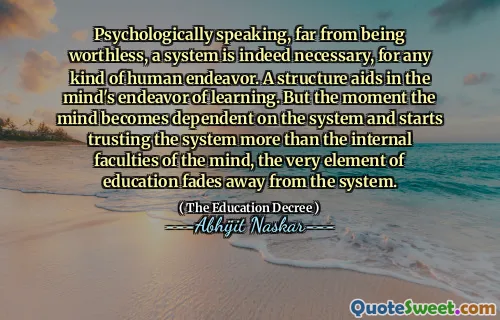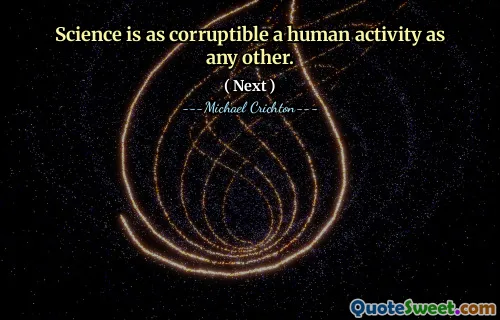
Psychologically speaking, far from being worthless, a system is indeed necessary, for any kind of human endeavor. A structure aids in the mind's endeavor of learning. But the moment the mind becomes dependent on the system and starts trusting the system more than the internal faculties of the mind, the very element of education fades away from the system.
The quote eloquently captures the delicate balance between structure and autonomy in the learning process. Systems, in any context, provide a scaffold that organizes and directs our efforts, making complex tasks more manageable and progress more measurable. From a psychological perspective, such frameworks are indispensable because they help channel cognitive resources efficiently, enabling focused and incremental growth. However, the cautionary note in the quote is a profound reminder that while external systems are helpful, overreliance on them can stifle the very essence of education—which is the cultivation of independent thought and critical thinking.
Education transcends mere memorization or routine; it is the enlightenment that propels the mind to question, innovate, and synthesize knowledge autonomously. When learners or practitioners begin to prioritize the system over their innate reasoning capabilities, learning transforms into a mechanical routine rather than a dynamic, reflective process. The system risks becoming a crutch rather than a tool, and education diminishes into conformity rather than empowerment. This insight stresses the importance of nurturing not only structured guidance but also encouraging intellectual independence and curiosity.
In broader terms, the quote challenges educators, institutions, and learners to strike a thoughtful balance where systems support but do not suppress the human mind's creative and analytical faculties. It reminds us that true education liberates the mind to operate beyond the constraints of any system, promoting adaptability and lifelong learning. Thus, systems should be designed with an awareness of their limits, fostering environments where internal faculties are strengthened rather than overshadowed.


